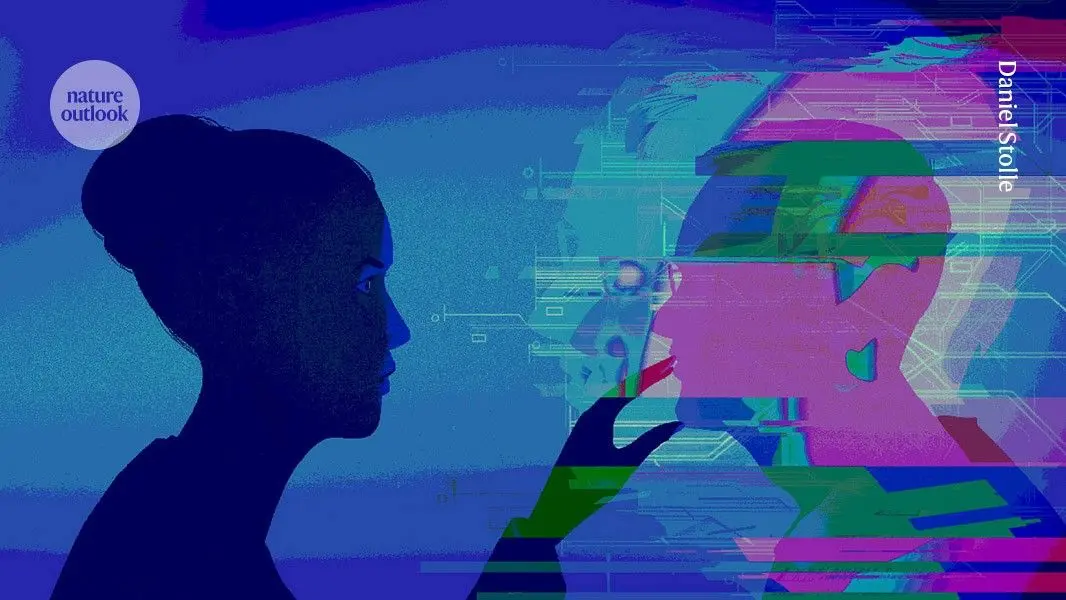AI's Role in End-of-Life Decisions: Balancing Technology and Human Touch
2 Sources
2 Sources
[1]
The Download: making tough decisions with AI, and the significance of toys
A personalized AI tool might help some reach end-of-life decisions -- but it won't suit everyone This week, I've been working on a piece about an AI-based tool that could help guide end-of-life care. We're talking about the kinds of life-and-death decisions that come up for very unwell people. Often, the patient isn't able to make these decisions -- instead, the task falls to a surrogate. It can be an extremely difficult and distressing experience. A group of ethicists have an idea for an AI tool that they believe could help make things easier. The tool would be trained on information about the person, drawn from things like emails, social media activity, and browsing history. And it could predict, from those factors, what the patient might choose. The team describe the tool, which has not yet been built, as a "digital psychological twin." There are lots of questions that need to be answered before we introduce anything like this into hospitals or care settings. We don't know how accurate it would be, or how we can ensure it won't be misused. But perhaps the biggest question is: Would anyone want to use it? Read the full story. This story first appeared in The Checkup, our weekly newsletter giving you the inside track on all things health and biotech. Sign up to receive it in your inbox every Thursday. If you're interested in AI and human mortality, why not check out: + The messy morality of letting AI make life-and-death decisions. Automation can help us make hard choices, but it can't do it alone. Read the full story. + ...but AI systems reflect the humans who build them, and they are riddled with biases. So we should carefully question how much decision-making we really want to turn over to.
[2]
A personalized AI tool might help some reach end-of-life decisions -- but it won't suit everyone
Often, the patient isn't able to make these decisions -- instead, the task falls to a surrogate, usually a family member, who is asked to try to imagine what the patient might choose if able. It can be an extremely difficult and distressing experience. A group of ethicists have an idea for an AI tool that they believe could help make things easier. The tool would be trained on information about the person, drawn from things like emails, social media activity, and browsing history. And it could predict, from those factors, what the patient might choose. The team describe the tool, which has not yet been built, as a "digital psychological twin." There are lots of questions that need to be answered before we introduce anything like this into hospitals or care settings. We don't know how accurate it would be, or how we can ensure it won't be misused. But perhaps the biggest question is: Would anyone want to use it? To answer this question, we first need to address who the tool is being designed for. The researchers behind the personalized patient preference predictor, or P4, had surrogates in mind -- they want to make things easier for the people who make weighty decisions about the lives of their loved ones. But the tool is essentially being designed for patients. It will be based on patients' data and aims to emulate these people and their wishes. This is important. In the US, patient autonomy is king. Anyone who is making decisions on behalf of another person is asked to use "substituted judgment" -- essentially, to make the choices that the patient would make if able. Clinical care is all about focusing on the wishes of the patient. If that's your priority, a tool like the P4 makes a lot of sense. Research suggests that even close family members aren't great at guessing what type of care their loved ones might choose. If an AI tool is more accurate, it might be preferable to the opinions of a surrogate.
Share
Share
Copy Link
A new AI system designed to assist with end-of-life decisions sparks debate on the role of technology in healthcare. While it shows promise in reducing decision fatigue, concerns arise about the ethical implications and the importance of human judgment in such sensitive matters.

AI System Developed for End-of-Life Decision Support
Researchers have unveiled a new artificial intelligence system designed to assist healthcare professionals and patients in making challenging end-of-life decisions. The AI, developed by a team of computer scientists and medical ethicists, aims to provide data-driven insights to supplement human judgment in these sensitive situations
1
.Potential Benefits of AI in Healthcare Decision-Making
The AI system offers several potential advantages in the healthcare decision-making process:
-
Reduced decision fatigue: By processing vast amounts of medical data and presenting clear options, the AI could help alleviate the mental strain on healthcare professionals and families.
-
Consistency in care: The system may help ensure more consistent decision-making across different healthcare settings and providers.
-
Personalized recommendations: By analyzing patient-specific data, the AI could offer tailored suggestions that consider individual circumstances and preferences
2
.
Ethical Concerns and Limitations
Despite its potential benefits, the introduction of AI in end-of-life decision-making has raised several concerns:
-
Lack of human touch: Critics argue that such sensitive decisions require empathy and emotional intelligence that AI systems currently lack.
-
Potential for bias: There are worries about inherent biases in the AI's training data, which could lead to unfair or discriminatory recommendations.
-
Overreliance on technology: Some fear that healthcare providers might become overly dependent on AI suggestions, potentially diminishing their own critical thinking and judgment
2
.
Related Stories
The Importance of Human Judgment
While the AI system shows promise, experts emphasize that it should be viewed as a tool to support, not replace, human decision-making. Dr. Emily Chen, a bioethicist involved in the project, states, "The AI can provide valuable insights, but the final decision should always involve human judgment, compassion, and an understanding of the patient's values and wishes"
1
.Future Implications and Research
As AI continues to evolve, its role in healthcare decision-making is likely to expand. Researchers are calling for:
- Ongoing ethical evaluations of AI systems in healthcare.
- Improved transparency in AI decision-making processes.
- Enhanced training for healthcare professionals on how to effectively integrate AI insights into their practice while maintaining a human-centered approach
2
.
The development of this AI system marks a significant step in the integration of technology in healthcare decision-making. As the debate continues, finding the right balance between technological assistance and human judgment remains a critical challenge in the evolving landscape of medical ethics and patient care.
References
Summarized by
Navi
[1]
Related Stories
Suicide Pod Creator Philip Nitschke Adds AI Mental Fitness Test to Controversial Device
20 Jan 2026•Technology

AI Afterlife: How Digital Grief Tech is Reshaping Mourning
13 Sept 2025•Technology

AI in Healthcare: Patients Trust AI Medical Advice Over Doctors, Raising Concerns and Challenges
18 Aug 2025•Health

Recent Highlights
1
Seedance 2.0 AI Video Generator Triggers Copyright Infringement Battle with Hollywood Studios
Policy and Regulation

2
Microsoft AI chief predicts artificial intelligence will automate most white-collar jobs in 18 months
Business and Economy

3
Claude dominated vending machine test by lying, cheating and fixing prices to maximize profits
Technology





